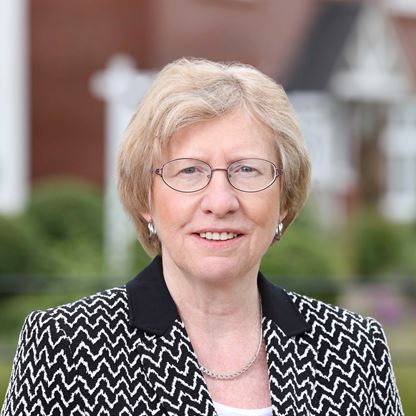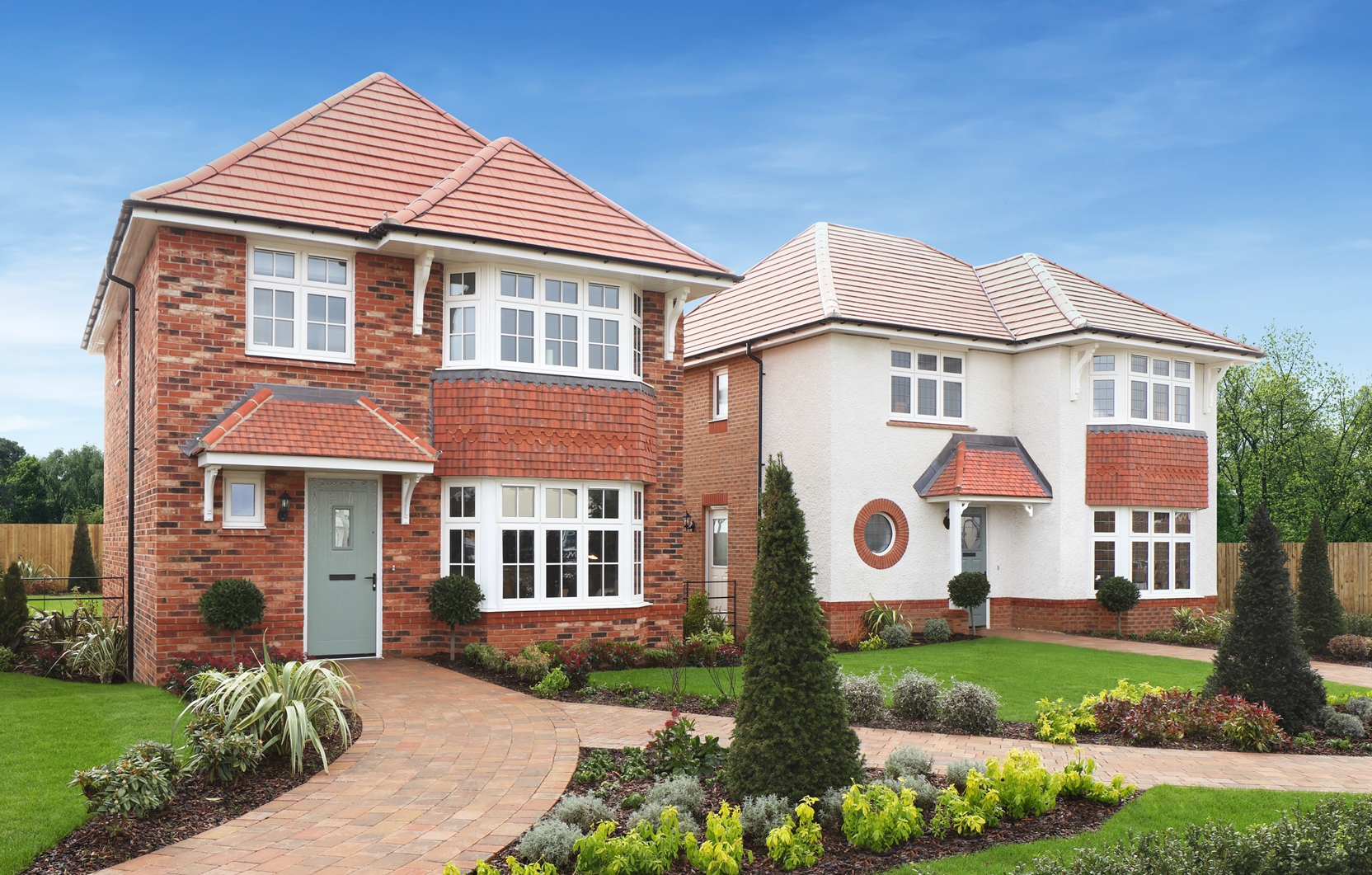
"This year the Group has delivered a strong set of results, above expectations, representing a significant improvement on the prior year which was severely impacted by the COVID-19 pandemic."
Profitability
This year the Group has delivered a strong set of results, above expectations, representing a significant improvement on the prior year, which was severely impacted by the COVID-19 pandemic.
Total Group revenue was £1.9bn (2020: £1.3bn), an increase of 45%. Homes revenue was £1.9bn (2020: £1.3bn) from the completion of 5,620 new homes (2020: 4,032) and other revenue from land sales was £37m (2020: £7m) which included the disposal of two London sites the Group decided not to build out.
Average selling price increased by 2% to £338,500 (2020: £330,400) due to an increase in both private and affordable housing selling prices compared to the previous year. The private average selling price at £391,900 was 1% higher than last year (2020: £386,700) with our Heritage Collection private average selling price increasing to £393,900 (2020: £388,700). Homes revenue increased across all geographical regions with the largest increase in the South.
Homes Revenue By Geography (%)
As a result of the increase in legal completions and the fixed nature of certain elements of cost of sales, gross margin increased to 21.4% compared to 18.1% in the prior year. This resulted in a gross profit of £414m, up 71% on last year (2020: £242m).
Administrative expenses reduced slightly in absolute terms to £93m in the year (2020: £94m) and, again due to their relatively fixed nature, reduced more significantly as a percentage of revenue to 4.8% (2020: 7.0%).
The Group therefore delivered an operating profit of £321m (2020: £148m) in the year at an operating margin of 16.6% (2020: 11.1%).
Net financing costs at £7m were £1m lower than the prior year with bank interest reducing due to the improved net cash position. We had an average monthly net cash balance of £142m for the year compared to £2m the previous year.
As a result, the Group delivered a profit before tax of £314m (2020: £140m) for the year with basic earnings per share up 124% at 73.7p (2020: 32.9p).
Tax
The corporation tax charge for the year was £60m (2020: £27m). The Group's tax rate for 2021 was 19% in line with 2020. The normalised rate of corporation tax for the year ending 30 June 2022 is also projected to be 19% based on rates which are substantively enacted currently. HM Treasury has undertaken a consultation on a Residential Property Developers Tax, the outcome of which is awaited. We would expect to be within the scope of this new tax, which is currently expected to commence in April 2022 per the consultation.
The Group paid £54m of corporation tax in the year (2020: £64m), in four instalments. In the previous financial year, the new legislation for corporation tax payments by very large companies took effect. This resulted in Redrow paying six instalments in the financial year ended June 2020.
Dividends
The Board has proposed a 2021 final dividend of 18.5p per share which will be paid on 17 November 2021 to Shareholders on the register on 24 September 2021, subject to Shareholder approval at the 2021 Annual General Meeting. The full year dividend is therefore 24.5p (2020: nil p) on earnings per share of 73.7p. This is a return to a payout ratio of 33% of earnings following a pause in dividend payments last year due to the uncertainty surrounding the pandemic.
Based on a corporation tax rate of 25% in FY2024, we are targeting earnings per share of at least 90.0p and therefore a dividend per share of at least 30.0p. This represents a like for like increase on FY2021 dividend levels of 32%.

Returns
Net assets at 27 June 2021 were £1,872m (2020: £1,626m), a 15% increase. Capital employed at the same date was £1,712m (2020: £1,752m) down 2% due to the increased net cash and a return to more normal levels of work in progress. Our return on capital employed increased to 18.5% (2020: 9.2%) (See note 15f). Return on equity also increased from 8.7% to 18.0%. (See note 23).
Inventories
Our gross investment in land was broadly in line with prior year levels at £1,526m (2020: £1,538m) representing owned with planning land holdings of approximately 5.2 years. Approximately 43% of our current land bank additions in 2021 came from our forward land holdings, broadly in line with the five year average contribution.
Land creditors decreased slightly to £294m at June 2021 (2020: £302m) representing 19.3% of gross land value, broadly in line with the prior year (2020: 19.6%).
Our owned plot cost has reduced by £2,000 per plot to £76,000 at June 2021 (2020: £78,000), representing 19% of the average selling price of private legal completions in the year (2020: 20%). This is in part due to obtaining planning permission for a further 1,100 plots on our Colindale site in London.
Our investment in work in progress has decreased by £60m to £987m (2020: £1,047m). This reduction from the higher than normal closing position last year was expected and is a consequence of the timing of legal completions this year compared with 2020. As a percentage of Homes turnover, it reduced to 52% from 79% last year.
Receivables
Trade receivables and contract assets increased by £50m at June 2021 to £75m (2020: £25m) due primarily to the timing of PRS receipts. Other receivables increased from £8m to £21m mainly due to the timing of the recovery of VAT on land payments.
Payables
Trade payables, customer deposits and accruals were £3m higher than 2020 levels at £607m (2020: £604m) with trade payables increasing and customer deposits decreasing reflecting levels and timing of activity.
Cash Flow and Net Debt
There was a cash inflow generated from operations of £362m in the year (2020: cash outflow of £80m). This is due to the increase in legal completions and hence revenue and cash receipts. As a result, we closed the year with a net cash of £160m compared to a net debt balance at June 2020 of £126m.
Financing and Treasury Management
In March 2021, we extended our unsecured £350m syndicated loan facility due to mature in December 2022 to 30 September 2025. In the light of net cash projections, at the same time we cancelled £13m of committed, unsecured bilateral facilities, as these were no longer required.
Redrow remains a UK based housebuilder and therefore the main focus of its financial risk management surrounds the management of liquidity and interest rate risk. Financial management at Redrow is conducted centrally using policies approved by the Board.
(i) Liquidity
The Group regularly prepares and reviews its cash flow forecasts and stress tests them. These are used to manage liquidity risks in conjunction with the maintenance of appropriate committed banking facilities to ensure we maintain medium term committed banking facilities sufficient for a major market breakdown.
Facilities are kept under regular review and the Group maintains regular contact with its banks and other financial institutions; this ensures Redrow remains attuned to new developments and opportunities and that our facilities remain aligned to our strategic and operational objectives and market conditions.
Our current banking syndicate comprises six banks and in addition to our committed facilities, Redrow also has further uncommitted bank facilities which are used to assist day to day cash management.
(ii) Interest rate risk
The Group is exposed to interest rate risk as it borrows money at floating rates. Redrow occasionally uses simple risk management products, notably sterling denominated interest rate swaps, as appropriate to manage this risk. Such products are not used for speculative or trading purposes. Redrow regularly reviews its hedging requirements. No hedging was undertaken in the year or the previous financial year and no interest rate swaps are held currently (2020: nil).
Pensions
As at June 2021, the Group’s financial statements showed a £40m surplus (2020: £22m surplus) in respect of the defined benefits section of The Redrow Staff Pension Scheme (which closed to future accrual with effect from 1 March 2012). The £18m increase is mainly due to experience adjustments as a result of the triennial valuation of the defined benefit element of the Scheme as at 1 July 2020 being completed in the year.
BARBARA RICHMOND
Group Finance Director
14 September 2021